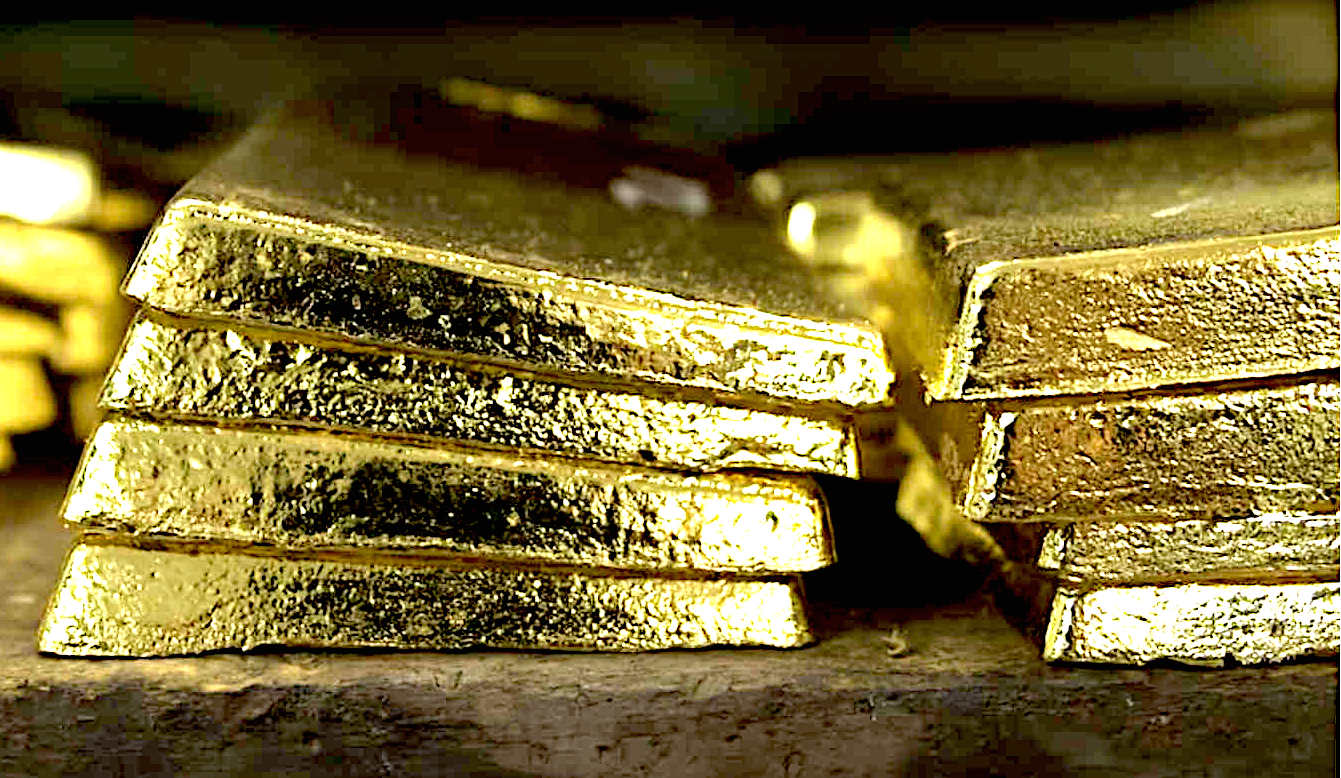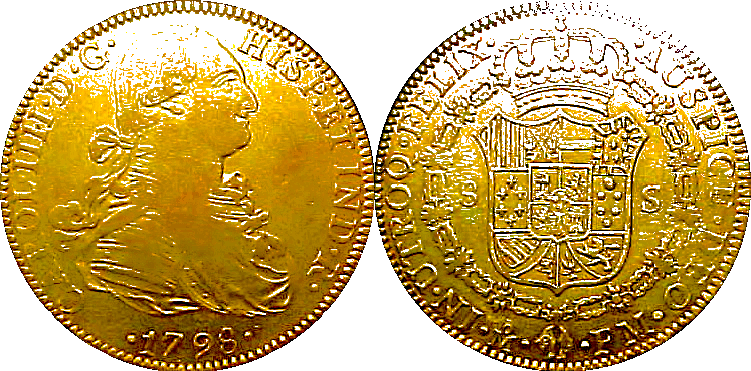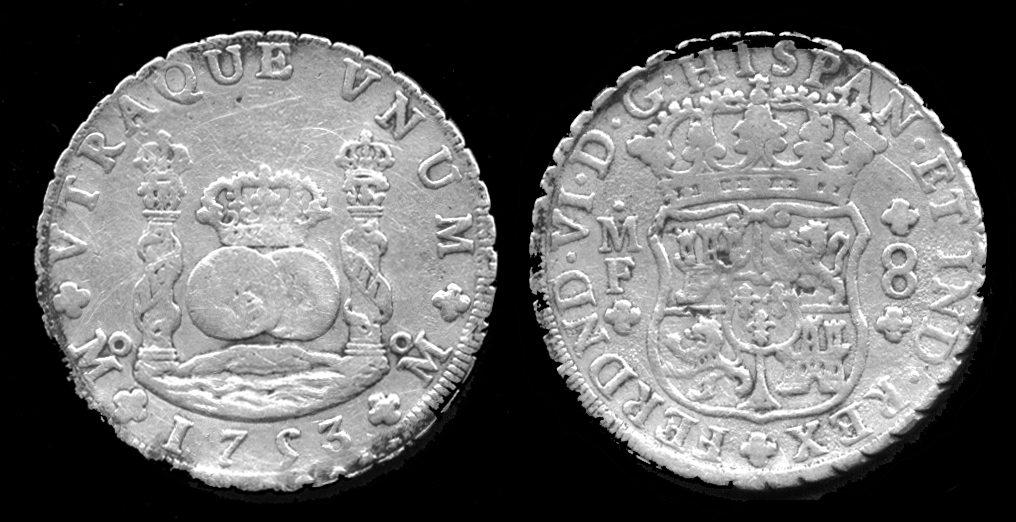|
GOLD STANDARD - RESERVES - A-Z
Dig for treasure with our A - Z or set a course for HOME me hearties
|
|
|
|
When food shortages and the energy crisis really begins to bite, only gold, silver and gemstones will be worth anything, by way of savings and pensions. Banks who trade in real coin of the realm, are the only ones who will be trusted in the future. Coins could soon make a comeback. The good news is that countries do not need to mint their own. Anyone can produce a quarter ounce dollar, based on the value of gold itself, rather than what any nation says it is worth. We'd suggest that gold is index linked to food, timber and other essential commodities.
In days gone by they traded in real money based on solid gold and silver minted coins. Today, paper currency is based on worthless promises, made by governments that are typically corrupt is some measure; political pirates, racking up staggering national debts, based on flawed policies. There are though some countries who are building up real wealth. Gold reserves as ingots and bars, that will be worth something when the digital/paper system collapses. Paper and digital currency is no better than Crypto currencies. Here today, gone tomorrow.
So it is that when John Storm discovers a long lost hoard of treasure, a number of nations are keen to get their grubby mitts on it. To add to their stockpiles.
TOP TEN
1.
The United States of America, with 8,133.5 tons of gold
TOP TWENTY
11. Turkey, with 488.87 tonnes
Turkey's gold reserves fell by more than 200 tonnes between 2017 and 2019, from 495.6 tonnes to 293.6 tonnes. The country then went on a buying spree due to concerns over its relationship with the US and a year of crisis for the nation's currency, the lira, and ended up with 716.3 tonnes of gold in the last quarter of 2020. It then led the global drive to sell off gold during the pandemic. 12. Taiwan, with 423.63 tonnes
Despite being a small island off the coast of China, Taiwan is sitting on 423.63 tonnes of gold. In 2019 the country dipped into its gold reserves to produce coins to commemorate the upcoming inauguration of President Tsai Ing-wen as the chairperson of the Democratic Progressive Party. The central bank made a total of 10,000 gold coins and 50,000 silver coins to mark the occasion, which took place in May 2020 13. Uzbekistan, with 390.03 tonnes
A mineral-rich country, Uzbekistan has a wealth of resources including oil, natural gas, gold, silver and uranium. As well as being a top producer of the precious metal, the country reportedly plans to continue increasing its gold reserves to 430 tonnes by 2024, a further increase of around 60 tonnes. 14. Portugal, with 382.57 tonnes
Portugal has 382.57 tonnes of gold. However, the country has battled economic instability and there have been calls for it to sell off some of its gold reserves to reduce its national debt, which currently stands at around €276 billion ($291bn/£239bn). Regulations make this easier said than done though and, for now, Portugal is holding onto its precious asset. 15. Kazakhstan, with 381.49 tonnes
Kazakhstan's National Bank increased its gold reserves by more than 100 tonnes in the past three years, in a bid to reduce the country's reliance on the US dollar and neutralise currency risks. And in the months before the COVID-19 pandemic hit, it bought up more gold. Even at the beginning of 2021, as the country was very much still feeling the effects of the crisis, Kazakhstan increased its gold ownership.
16. Saudi Arabia, with 323.07 tonnes
The oil-rich country of Saudi Arabia has the second-highest gold reserves in the Middle East, with 323.07 tonnes of the precious metal. As part of plans to diversify its economic base and rely less heavily on oil, Saudi Arabia is also committed to boosting its gold mining industry. Although overshadowed by oil, this is not a new endeavour, as archaeological studies show that gold was mined in the country up to 5,000 years ago.
17. United Kingdom, with 310.29 tonnes
Many countries choose to store their gold in the heavily fortified Bank of England vault, the second largest in the world after the vault at the New York Federal Reserve. The UK has its fair share of gold reserves too, with 310.29 tonnes of the precious metal currently held in its name. Despite there being no active gold mines in the UK, it's long been seen as the centre of the wholesale gold market and a major importer and exporter of the metal.
18. Lebanon, with 286.83 tonnes
It may not be the most stable country in the world, but this small nation is rich in gold. Lebanon is currently holding onto 286.83 tonnes of gold, giving it the third-largest reserves in the Middle East. Although Lebanon has a mining industry, gold is not one of its abundant natural resources, and it principally mines limestone, iron ore, and salt.
19. Spain, with 281.58 tonnes
Spain holds just over a tonne more gold than Austria. Gold mining has been going on in Spain since pre-Christian times and it was the Romans who turned it into a flourishing industry.
20. Austria, with 279.99 tonnes
There's a relatively big leap between 21st and 20th place with Austria recorded as holding 279.99 tonnes of gold, over 35 tonnes more than Thailand. In the past, much of Austria's stock has been held by the Bank of England, but in 2015 it was announced that the Austrian National Bank wanted to repatriate much of this back to Vienna so that at least half of Austrian gold is held at home.
TOP THIRTY
21. Thailand, with 244.16 tonnes
Thailand added more than 90 tonnes of gold to its stockpile in the second quarter of 2021, bringing its total reserves to 244.16 tonnes and shifting the country five places up the gold ownership rankings. Thailand mines its own gold, and the Thai people place a high value on the precious metal. In fact, gold jewellery is arguably more popular in southeast Asia as a whole than it is elsewhere in the world.
22. Poland, with 228.67 tonnes
In November 2019, Bloomberg reported that Poland had transported $5.2 billion (£4bn) worth of Polish-owned gold bars from the Bank of England, where they had been stored since World War II to hide them from the Nazis, to secret vaults back in Poland.
23. Belgium, with 227.4 tonnes
Belgium is holding onto 227.4 tonnes of gold. Most of this is thought to be held abroad, with some in the Bank of England and some in the Bank of Canada. There was talk of the country repatriating its stocks, but it's thought that the transport and security costs involved in the move were prohibitive and Belgium was unsure where to store its gold if it did return to home soil.
24. Algeria, with 173.56 tonnes
The North African country of Algeria has over 12 tonnes more gold than Venezuela, with 173.56 tonnes of the gilded stuff. It also has a strong gold mining tradition, with gold thought to have been mined here on a small scale since pre-Roman times. The government has only recently taken steps to encourage commercial gold mining on a large scale as it's thought that there is a great deal of wealth hidden beneath its soil.
25. Venezuela, with 161.22 tonnes
Venezuela was in the top 20 gold owners until a few years ago. But in a bid to reduce its vast debts and fend off economic crisis, it sold off about $1.7 billion (£1.2 billion) worth of gold in early 2016. In September 2019, it was reported that the country's reserves had fallen to a 75-year low as the government sold off gold to restructure its debt. Venezuela has been trying to sell more of its gold reserves to combat the effects of the pandemic by using the money it raises to buy into the United Nations Development Programme, which will allow it to buy more medical equipment, medicines, and food.
26. Philippines, with 155.37 tonnes
The Philippines is one of Asia's largest gold producers. Although mining is big business here, it's thought that much of the country's gold remains untapped. Desperately poor locals hoping to get lucky and literally strike gold even undertake dangerous dives in mud-filled swamp mines in search of the precious metal. The Philippines has large reserves of gold already, however, with 155.37 tonnes currently under its ownership. That's a slight decrease of 2.52 tonnes since the end of 2021.
27. Singapore, with 153.74 tonnes
Those looking for a secure place to store their gold often settle on Singapore, because the country hasn't been tarnished by any major corruption scandals, crime is low and so are taxes, and the cost of gold storage is incredibly competitive. The country itself has also got a substantial reserve of gold: 153.74 tonnes of the stuff to be precise, a significant increase of 26.34 tonnes between the second and third quarters of 2021.
28. Iraq, with 130.32 tonnes
A newcomer to the top 30, Iraq increased its gold reserves by a substantial 33.97 tonnes in the first quarter of 2022, the largest addition of any country in the world. The Middle Eastern nation has reportedly been busy expanding its reserves of both gold and cash, with the Central Bank of Iraq having expected the latter to rise from $80 billion (£69.2bn) to $90 billion (£77.8bn) by the end of 2022. According to the bank's Deputy Governor Ammar Khalaf, this has been a response to rising oil prices as a result of the Russian war in Ukraine. Iraq then actually reduced its reserves by 0.7 tonnes between the second and third quarters of 2022.
29. Brazil, with 129.65 tonnes
In the second quarter of 2021, Brazil added a considerable 53.75 tonnes of gold to its reserves, almost doubling its hoard and pushing Mexico out of the top 30 countries. The purchase was reportedly Banco Central do Brasil’s largest gold acquisition since at least December 2000. The move was unsurprising, as the World Gold Council anticipated that central banks would be net buyers of gold following the precious metal’s stellar performance during the COVID-19 pandemic. In the third quarter of 2021, Brazil followed up this purchase by buying a further 8.54 tonnes, meaning its reserves now outweigh those of Sweden for the first time.
30. Sweden, with 125.72 tonnes
Sweden isn't an obvious choice as a major player in the gold market, but this Scandinavian country actually owns 125.72 tonnes of gold
bars, having remained neutral in World War Two. It doesn't keep all its stocks on home ground, however. As well as Sweden's central bank – the Riksbank – the country's gold is also reportedly held within the Bank of England, the Bank of Canada, the Federal Reserve Bank in America, and the Swiss National Bank.
HOW
DOES HAVING GOLD RESERVES IMPACT A COUNTRY?
The best known golden treasures are Doubloons, Guineas and Sovereigns. Other forms of transportable money are diamonds, rubies and emeralds.
Treasure Island was written by Robert Louis Stevenson, becoming an instant hit, popular with children and adults, the subject of many films and graphic novels.
STORM BY NAME, STORMY BY NATURE - Only two people knew where Henry Morgan's golden hoard was stashed, and they are both in Davy Jones Locker. Blackbeard was tortured by a British officer, trying to extract the secret, Henry Morgan died of a heart attack in Jamaica. John Storm discovers the location, but refuses to tell, even in the International Court, where Haigue prosecutors try every trick in the book to make him talk.
|
|
Dig for treasure with our A - Z or set a course for HOME me hearties
This website is Copyright © 2023 Cleaner Ocean Foundation & Jameson Hunter - All rights reserved
|



